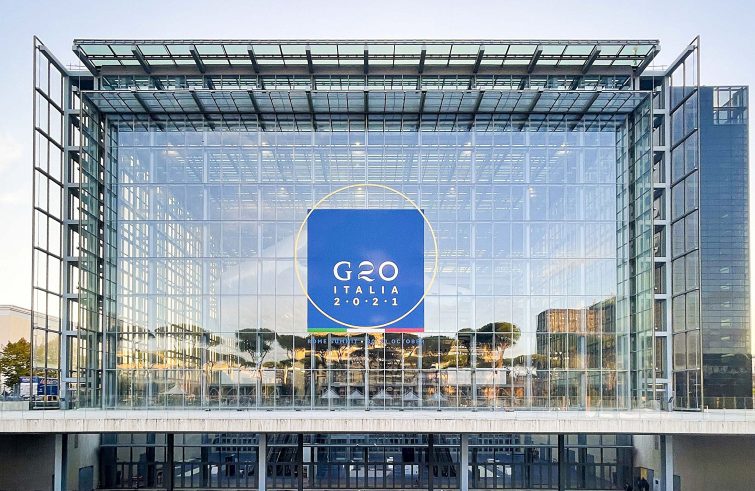
A red string runs through Rome and Glasgow, connecting the G20 and Cop26. It is no coincidence that these two events occur one after the other. In fact the two meetings, which differ in terms of participants and declared objectives, share some common features. First and foremost multilateralism, aptly described by Italian Prime Minister Mario Draghi as “the best answer to our current problems. In many ways, the only possible answer.” A key element is a global political and economic vision that acknowledges complex and interconnected problems, thereby aiming to provide credible and feasible solutions. These include sustainable economy, tackling climate change, taxation and the international financial system, combating current and future pandemics, developing the least developed countries, migration, the fight on terrorism, establishing lasting peace in the world’s most afflicted regions, respect for human rights and gender equality throughout the globe.
The G20 Rome Leaders’ Declaration tackles several of these points. It starts with the commitment to curb global warming ( reaffirming the Paris Agreement, to hold the global average temperature increase well below 2°C and to pursue efforts to limit it to 1.5°C, but without setting a specific date), and ends with the Global Minimun Tax and $100 billion a year to support poor nations. Now the baton is in the hands of the United Nations Climate Change Conference in Scotland, which, while focusing on environmental issues in particular, will inevitably have to take into account all the other issues. Acting effectively on the various fronts is a prerequisite for, and a guarantee of, success, to be built step by step over time, involving political, economic and social players.
In this respect, it will be necessary to redress the scepticism shown by young climate activist Greta Thunberg, who claimed that any major improvement in terms of climate change will not occur via “high-level” political decisions, but rather via integral ecology (sharing the expression of Pope Bergoglio) initiated “at grassroots level”, in our daily lives. This entails a cultural paradigm shift and “environment-friendly” lifestyles, as we learn from the young people of Fridays for Future. However, strategic actions and decisions taken by decision-makers, such as the Heads of State and Government, parliaments and regional and local administrators, are equally necessary. All these actors, elected by the citizens (at least in democratic countries), are accountable to them for their commitment to building a liveable planet, now and for future generations.
At this point, there are perhaps two other aspects that major gatherings such as the G20 and COP26 should embrace if they are to achieve such ambitious agreements and subsequent results. In addition to multilateralism (the negation of the nationalist and populist drives present throughout global politics, including Italy), a wise and feasible form of environmentalism is needed, as well as – and here I would like to use an expression from the religious sphere – synodality. In fact, synodality implies walking together, listening (to the peoples, to the wounds of planet Earth and its people, to each other’s needs…) and discerning at a community level before taking decisions.
Some signs were seen in Rome. Can we now expect the synodal style to be applied in Glasgow?












